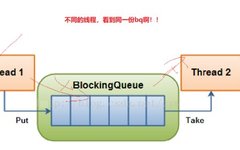Understanding Linux Synchronization Principles: Simulating the BlockQueue Producer-Consumer Model for Efficient Concurrent Programming!
Linux | Red Hat Certified | IT Technology | Operations Engineer 👇 Join our technical exchange QQ group with the note 【Public Account】 for faster approval 1. Concept of Thread Synchronization Condition Variable: When a thread accesses a variable exclusively, it may find that it cannot proceed until other threads change the state. For example, … Read more









